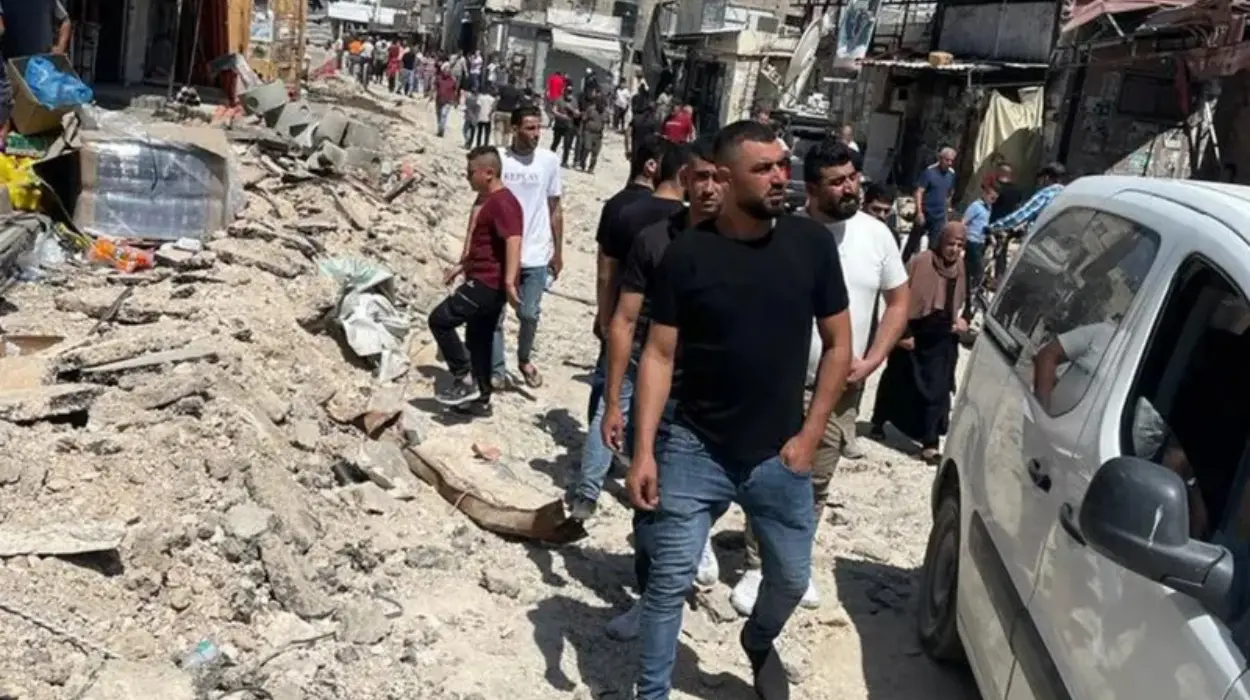Middle East (Transatlantic Today) – The atmosphere in Jenin’s refugee camp resembles Gaza post-conflict but is unfolding in the occupied West Bank, where dynamics differ profoundly. In what feels like a swift descent into a more perilous situation, the destruction from the Israeli army’s largest operation in 20 years is stark.
Hundreds of Israeli troops entered the camp on a recent Monday, unleashing airstrikes, unseen in the West Bank for two decades, and clearing roads of militants’ bombs. Gun battles between the Israeli forces and Palestinian militants continued until Israeli troops withdrew on Tuesday night.
In the aftermath, thousands of residents filled the streets to survey the wreckage. They captured images of demolished homes, vehicles crushed by Israeli bulldozers, and damage to water and power networks. For many, the devastation recalls scenes from earthquakes in Turkey and Syria earlier this year.
Although the Israeli convoys have pulled out, fear persists. Israel has pledged to continue operations as long as needed, while Palestinian militant groups have vowed revenge, deepening the resolve on both sides. Amid the turmoil, the camp mourns the deaths of 12 Palestinians, four of whom were minors.
The growing violence in Jenin highlights the crumbling peace process. The younger generation of militants is disillusioned with the Palestinian Authority, viewing it as complicit in Israel’s military occupation. This frustration recently led to clashes between residents and PA forces, underscoring the region’s escalating instability.
As Israel continues its mission to curb what it deems a “city of refuge for terrorism,” some fear that the West Bank may soon experience more intense military action. The result is a sobering picture: deepening disillusionment among Palestinians, a shifting balance of power in favor of armed resistance, and an Israeli government steadfast in expanding settlements and asserting exclusive rights over the contested land.


























